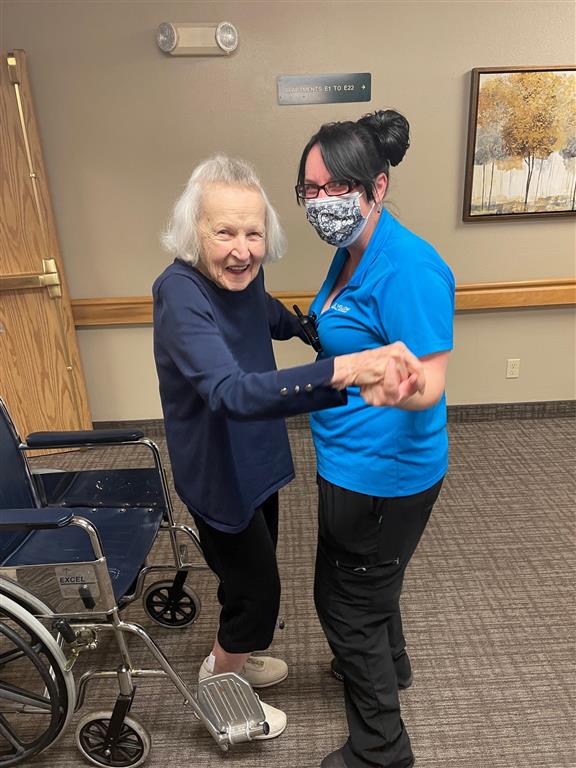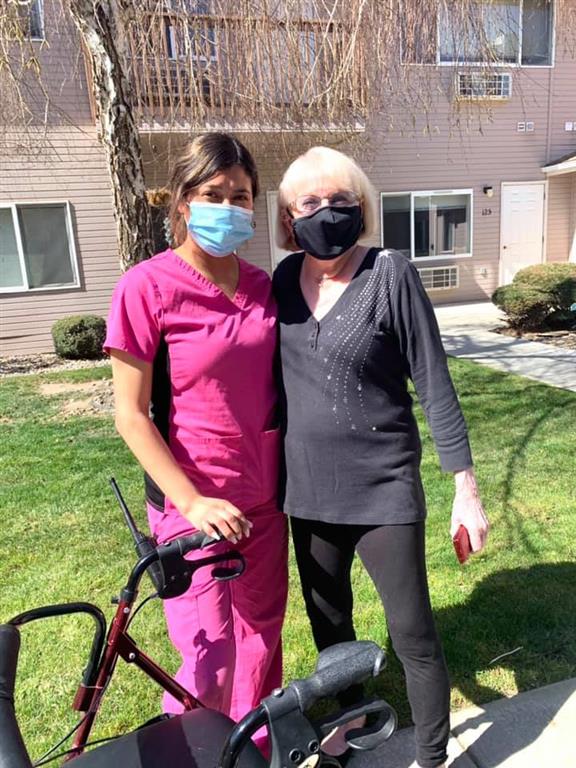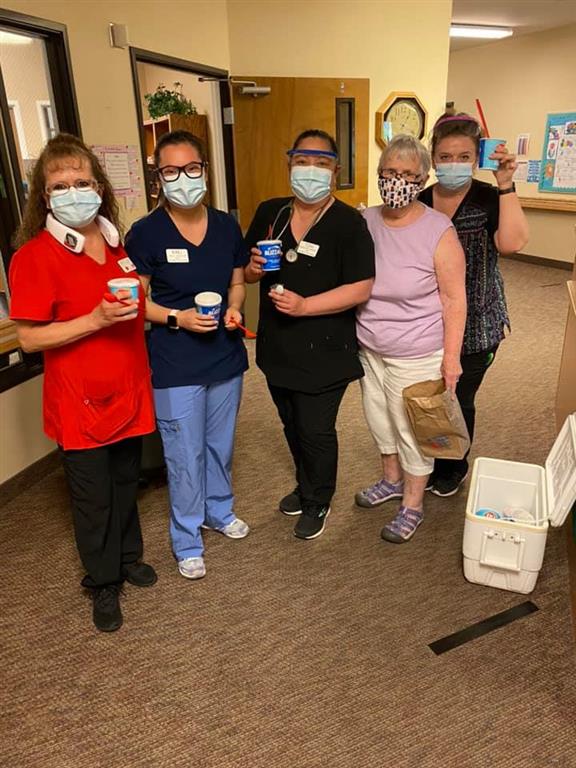For elderly individuals or those living with disabilities, caregivers play a vital role in their lives by offering both emotional and physical support. Through assistance with routine daily tasks, medication management, and transportation, caregivers offer a lifeline to those in need, also oftentimes serving as a person’s primary source for socialization. Unfortunately, while this role is inherently important, most caregivers are unpaid since they are taking care of family members.
According to the National Alliance for Caregiving (NAC), more than 1 in 5 Americans were caregivers at some point in 2019-2020. This made up 21.3% of the total population.
While caregivers’ sole purpose is to give, we can’t help but ask who are taking care of the caregivers? Studies have shown that caregivers’ emotional and physical health often deteriorates because of the unpredictability, input, and strain of caregiving.

A caregiver dances with a resident at Fox Hollow Residential Care (Eugene, OR)
Mental and Physical Effects of Caregiver Duties
Nearly 23% of caregivers report that being a caregiver has made it more challenging to take proper care of their own health. We typically see this in cases where the recipient requires constant supervision. According to the NAC, up to 36% of caregivers report their role to be highly stressful since it can easily get in the way of their own daily living. This can become dangerous since leaving one’s own physical health unchecked can create room for illness.
For example, caring for a loved one who is frequently in distress can trigger depression within the caregiver. Other care recipients like those living with dementia are unable to express emotions like gratitude or, sometimes, barely even able to recognize their caregivers which can also contribute to caregiver stress.

A caregiver and resident embrace their friendship at Sunnyside Assisted Living (Sunnyside, WA)
The Role of Caregiver Guilt in Caregiver Health and Stress
If caregiving can have such a significant toll on everyday life, why don’t most people surrender the duty to someone else?
Simple, caregiver guilt.
Caregiver guilt happens when a caregiver feels obligated to take care of their loved one on their own because they made a promise to always be there. Other times, they feel that they can offer the best care since they already have a connection with the recipient.
It’s more than okay to want to care for someone you love, but when the responsibility becomes too much to bear, harm might come to both of you plus your family and friends. For example, some people try to ease their own caregiving role by encouraging their children or other family members to help, lessening their own stress but giving it to others.
Other caregivers are forced to switch jobs or quit their job all together for a while because of the time demands that being a caregiver requires. Given that 61% of caregivers are usually employed when they take on their caregiving role, quitting can cause unwanted financial strain on them and their household.

Caregivers at Summit Place Assisted Living receiving a delicious treat from a grateful family member (Bellingham, WA)
Public Caregiver Resources to Help with Caregiver Burnout
There are many plans of action when it comes to dealing with the stress that sometimes comes with the caregiver role:
- Get paid for becoming a family caregiver. It should be no problem as long as you’re eligible.
- Get caregiving guides and resource lines to call for when you get stuck.
- Get veteran affairs (VA) benefits for qualifying senior veterans.
- Access federal government resources and other government programs that will pay you for being a caregiver.
- Use respite care. Respite care can provide you with the necessary time it takes to replenish yourself when you’re feeling depleted while offering the safety, quality care, and daily assistance that your loved one requires. Nightingale Healthcare offers respite care at all its assisted living communities.
Final Thoughts
Each caregiver’s situation is unique. There may be a time when you feel that transitioning your loved one into an assisted living setting is more aligned with your lifestyle and/or their individual needs. Or, you might feel that taking advantage of respite care for a brief duration of time will accommodate your needs just fine.
Our Nightingale Healthcare facilities offer both respite and assisted living care options backed by an experienced team of friendly, skilled, and compassionate professionals. We are a family-owned company that is entirely vested in helping provide relief for seniors and caregivers across the states of Oregon and Washington.
Please don’t hesitate to reach out to us and let us know how we can help you. Nightingale Healthcare assisted living communities that also offer respite care:
Fox Hollow Residential Care in Eugene, OR
Spruce Point Assisted Living & Memory Care in Florence, OR
Summit Place Assisted Living in Bellingham, WA
Sunnyside Assisted Living in Sunnyside, WA
